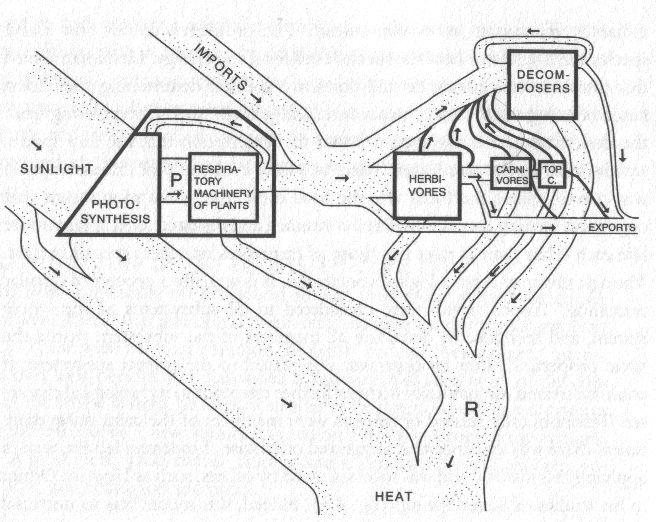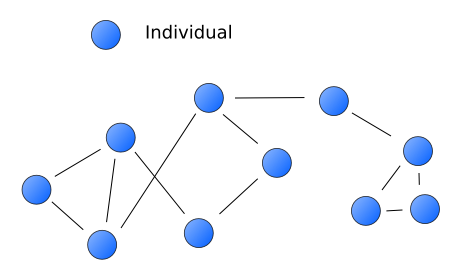A teacher and a consultant walk into a bar…and they have a conversation that anyone can understand!
My friend, Doug, a professor in education with a background in educational instruction and assessment and currently a department chair, and I got into a wide-ranging conversation covering our areas of mutual interest and concern. We both have wide-ranging interests, and we each read a lot and keep abreast of each other’s areas of interest. And although most of my recent work has been in business, organizations, finance and economics, we’ve worked on projects together involving education and community action. It’s fun as well as challenging to hang out with people like Doug; I have to keep my own learning up to date if I expect to keep pace! He began the conversation. “What’s your take on the economy, and what do you think we can do to make things work better?” he asked. I wondered about his thoughts on the status of higher education, and how well he thought colleges and universities were doing in fulfilling their missions. We discovered a couple of important intersections: education and economic growth and sustainability are very closely related.
- Four patterns stand out as causes for economic woes:
- undermining the importance of information
- confusion of goals
- inadequate education that must include critical thinking skills in an ever more complex world
- the loss of sustainable employment and the decline of wages.
- The troubling patterns in education include:
- Educators at each institutional and grade level tend to find fault with the previous grades for not providing “good education” but rarely question their own roles and responsibilities, and then fail to attend to the real learning needs of students
- Consequently, education systems and structures have hardly changed in relation to the needs and conditions of the world around us
- Students and learners carry the brunt of the consequences, and teachers are blamed for everything, while education in general is underfunded and un-prepared
- If our information and analysis are at all accurate, then the joke emerges: our economy and our economic systems rely heavily on education, the education system is inadequate to the challenge and to fix it we need a public commitment to changes and alternatives in education and we need funding for education as both local and national priorities, and the funding won’t be available without a robust and sustainable economy.
- For free markets and vibrant business to succeed, information about any and every transaction, must be reliable, and it must be equally shared with all parties, and that includes underlying information about the participants themselves.
- The desire for “confidentiality” as applied to producers and traders is entirely misdirected: without reliable and timely information about a product, and about the commercial (including financial) health of the producer and the distributor, any market exchange is skewed and its results are suspect.
- A major cause, perhaps the largest single cause, of the 2008 recession and bust, was the huge quantity of misinformation being passed between market players: banks misinformed each other, lenders misinformed borrowers, borrowers misinformed lenders, corporations misinformed stock-holders, everyone misinformed ratings organizations, and markets were left managing transactions built on falsehoods and misdirections.
- Computerized trading in financial markets only amplified the misinformation, taking trade markets rapidly in one direction or the other without real data or evidence.
- Reliable information was, essentially, taken out of the market. And for markets to work — for markets to act even remotely like the Adam Smith model — traders need to have access to the same, and to all, the information embodied within any proposed transaction. Auctioneers, market makers, and brokers all serve a mid-ground position to help match up buyers and sellers through an information posting and exchange mechanism. That’s what the ideal stock market does, and that’s what the ideal public marketplace does.
- Regardless of political persuasion, every rational person will have to admit to the importance, the sacredness, of quality information if he or she believes at all in market economies.
- The stated technical goal of free market liberal economies is the rational resolution of participants each seeking maximum benefit. It has been believed that well formed markets will allow rational players to each reach their best possible position in relation to every other player, because rational players in a rational market, having the same complete information, will essentially negotiate a transaction that is mutually beneficial.
- But the current unstated goal is that each player gets the chance get whatever he or she can. That is, the way we tend to play it out is to pursue individual self-interest at all costs to others. Gold becomes a highly valued and over-priced commodity in a market built on greed and deliberate misinformation, for example. Yet investments in gold support child-labor and near slave labor working conditions, engagement in environmentally hazardous extraction processes, and the movement of working capital into metal stockpiles such that capital becomes unavailable to local and regional economies.
Education that includes learner-centered methodologies, project centered learning, life-long learning, critical thinking, and complex systems — and, importantly, this includes education that encompasses and embraces the arts! — is essential to the long-term development of sustainable systems as well as market economies, not to mention healthy democracies.
Month: May 2013
About Daniel Lieberman
 Daniel Lieberman worked as a manager and software developer in his family’s business, Lieberman’s Gallery, LLP, a wholesale distributor of art prints and posters. The family sold the business in 2008 (the link has some company history).
Daniel Lieberman worked as a manager and software developer in his family’s business, Lieberman’s Gallery, LLP, a wholesale distributor of art prints and posters. The family sold the business in 2008 (the link has some company history).
With partners Rick Feldman. Rick Plaut, and Rich Roth, he runs InCommN, LLC.
Daniel edits the weekly InCommN Newsletter, and writes the InCommN Almanac.
Daniel volunteers as a mentor and facilitator with Valley Venture Mentors, a non-profit group in Springfield, Massachusetts which bring startups and mentors together to help businesses get off to a good start and build the regional economy. He has facilitated for five startups in the program and mentored many more. He’s currently very excited to be working with Voncierge, the virtual concierge service for brides-to-be.
Daniel grew up in Westfield, NJ. He lived in New York City, mostly in Brooklyn (“Only the Dead Know Brooklyn”), before moving to Western Massachusetts in 1991. He lives with his partner, Kathy Puckett (AKA the Crazy Orchid Lady) in Shelburne, Massachusetts. He serves as the Wired West Delegate from the town of Shelburne, and is on the Board of the Greater Shelburne Falls Area Business Association, where he also chairs the Communications/Marketing Committee.
Email: daniell@incommn.com
Phone: 413 489 1818
LinkedIn: http://www.linkedin.com/in/danieljlieberman/
Twitter: https://twitter.com/damfino11
Facebook: https://www.facebook.com/danieljlieberman
Google+: https://plus.google.com/u/0/105376074449884215888/posts
About Rick Feldman
 Our common good is the necessary and emergent number one priority for this era of new economics and community building. Rick has dedicated his professional career and private life to this vision: resilient communities linked to resilient enterprises, working collaboratively to integrate our highest principles in social, economic, and environmental justice. A founder of INCOMMN, his interests here are to assist enterprise development, and the building of enterprise communities. He draws on a professional background that has included public policy analysis and regional economic policy education, writing, and consulting, as well as management and leadership in both commercial and not-for-profit enterprises. He currently provides group and organizational development, business and enterprise consulting and coaching, workshops and one-to-one mentoring to entrepreneurs. Rick is a facilitator and trainer with Valley Venture Mentors, a member of the Hidden Tech Steering Committee, a Board member of Common Good Finance, and most recently joined the team of CrewFund, a very new initiative to develop a permanent endowment fund in support of enterprises who identify the common good as their number one priority.
Our common good is the necessary and emergent number one priority for this era of new economics and community building. Rick has dedicated his professional career and private life to this vision: resilient communities linked to resilient enterprises, working collaboratively to integrate our highest principles in social, economic, and environmental justice. A founder of INCOMMN, his interests here are to assist enterprise development, and the building of enterprise communities. He draws on a professional background that has included public policy analysis and regional economic policy education, writing, and consulting, as well as management and leadership in both commercial and not-for-profit enterprises. He currently provides group and organizational development, business and enterprise consulting and coaching, workshops and one-to-one mentoring to entrepreneurs. Rick is a facilitator and trainer with Valley Venture Mentors, a member of the Hidden Tech Steering Committee, a Board member of Common Good Finance, and most recently joined the team of CrewFund, a very new initiative to develop a permanent endowment fund in support of enterprises who identify the common good as their number one priority.
InCommN
 InCommN, LLC works with businesses, non-profits, individuals, and municipalities. Our strong commitment to community service and our passion for technology help you get better at doing business in the 21st century.
InCommN, LLC works with businesses, non-profits, individuals, and municipalities. Our strong commitment to community service and our passion for technology help you get better at doing business in the 21st century.
In A Local Economy’s Network
In A Local Economy’s Network
We continually review and often revise—to better describe—INCOMMN’s vision and mission.  Let’s start with the name: INCOMMN is an acronym for “Interactive Communities Network”. “Communities” include the communities we live in, we work in, and interact in. Our name is itself visionary: imagine a highly active fabric of interconnected businesses and communities that describe a regional economy as a whole. To accomplish this, we’re committed to building, encouraging, and supporting ecosystems of businesses, non-profit organizations, and local communities. An ecosystem is the detailed interactions and resources in which we all operate. For INCOMMN, this ecosystem provides the environment, resources, transactions, and supports for on-going venture, organizational, and community development. What emerges from all this is the collaborative economy: all the players, ideally on and with purpose, but often enough by accident, interact in ways to help each other achieve and accomplish. This is the “common good” in action.
Let’s start with the name: INCOMMN is an acronym for “Interactive Communities Network”. “Communities” include the communities we live in, we work in, and interact in. Our name is itself visionary: imagine a highly active fabric of interconnected businesses and communities that describe a regional economy as a whole. To accomplish this, we’re committed to building, encouraging, and supporting ecosystems of businesses, non-profit organizations, and local communities. An ecosystem is the detailed interactions and resources in which we all operate. For INCOMMN, this ecosystem provides the environment, resources, transactions, and supports for on-going venture, organizational, and community development. What emerges from all this is the collaborative economy: all the players, ideally on and with purpose, but often enough by accident, interact in ways to help each other achieve and accomplish. This is the “common good” in action.
A Regional Economic Model
 At the more mundane level—putting this into practice—I often get to work on projects that fully illuminate the network. In the past month, I’ve been developing an economic model—a picture—of the Western Massachusetts region and sub-regions to reveal the particulars of this networked economy. It’s truly fascinating to develop the image at this highly detailed level. I’ve been doing this sort of data gathering and analysis for almost thirty years now; studying regions throughout New England, Colorado, Illinois, California, and Europe. Regional economic modeling and analysis has its rewards: great, beautiful pictures are revealed. This week, I was reminded of this again. We discover in these projects just how tightly woven the economic fabric in any region can be, and what might be achieved if we work even more on developing that fabric. And it is a fabric: a network so well connected and established that we see very clear patterns. For example, even small scale increases in production in any one major industry create jobs and raise incomes throughout the entire network. The inverse is also true. A decline in regional and local food production, for example, impacts food pricing; which will impact household purchasing, restaurants, grocery stores, and even tourism. And if households continually have to limit their purchasing choices to smaller and smaller ranges, then some purchasing gets delayed or even eliminated. Another example is the rapidly expanding world of telecommunications. It’s almost impossible to remain competitive in any business without ready access to advanced telecommunications: data, voice, and video delivered via broadband connectivity. If Western Massachusetts lacks adequate and affordable connectivity, the ecosystem cannot support business or organizational development and growth. Jobs will be lost, incomes reduced, and towns and cities decline. In fact, every industry in a region is eventually—and most often very directly—linked to every other industry through what gets purchased and produced. To produce the telecommunication infrastructure and services needed in our region, that industry has to purchase wire, cable, wood, plastic fasteners, a variety of metal parts, tools, trucks, parts, electricity and…Well, in fact, over $400 million worth of inputs and services a year. And it has to hire people, and they need decent wages, and they need to purchase food, health care, clothing, housing…the network of interactions becomes increasingly complex!
At the more mundane level—putting this into practice—I often get to work on projects that fully illuminate the network. In the past month, I’ve been developing an economic model—a picture—of the Western Massachusetts region and sub-regions to reveal the particulars of this networked economy. It’s truly fascinating to develop the image at this highly detailed level. I’ve been doing this sort of data gathering and analysis for almost thirty years now; studying regions throughout New England, Colorado, Illinois, California, and Europe. Regional economic modeling and analysis has its rewards: great, beautiful pictures are revealed. This week, I was reminded of this again. We discover in these projects just how tightly woven the economic fabric in any region can be, and what might be achieved if we work even more on developing that fabric. And it is a fabric: a network so well connected and established that we see very clear patterns. For example, even small scale increases in production in any one major industry create jobs and raise incomes throughout the entire network. The inverse is also true. A decline in regional and local food production, for example, impacts food pricing; which will impact household purchasing, restaurants, grocery stores, and even tourism. And if households continually have to limit their purchasing choices to smaller and smaller ranges, then some purchasing gets delayed or even eliminated. Another example is the rapidly expanding world of telecommunications. It’s almost impossible to remain competitive in any business without ready access to advanced telecommunications: data, voice, and video delivered via broadband connectivity. If Western Massachusetts lacks adequate and affordable connectivity, the ecosystem cannot support business or organizational development and growth. Jobs will be lost, incomes reduced, and towns and cities decline. In fact, every industry in a region is eventually—and most often very directly—linked to every other industry through what gets purchased and produced. To produce the telecommunication infrastructure and services needed in our region, that industry has to purchase wire, cable, wood, plastic fasteners, a variety of metal parts, tools, trucks, parts, electricity and…Well, in fact, over $400 million worth of inputs and services a year. And it has to hire people, and they need decent wages, and they need to purchase food, health care, clothing, housing…the network of interactions becomes increasingly complex!
We’re All in This Together
 You, me, and our colleagues in entrepreneurship, understand this even at our smaller scales of operation. INCOMMN purchases and rents space, pays for printing, owns computers, and buys a variety of web-based and telecommunication services as well as devices. And we’re very small economic players in the whole network. Our success depends on our own choices in many ways, but it also depends on finding what we need from all the other businesses and organizations in the region. Vibrant, growing and complete ecosystems allow us to gain capacity, produce high quality services, and deliver what our customers and stakeholders need and expect. When you work at your desk today, think about how you’re an important player in a vast, tightly connected network. Stop for a minute and appreciate the rich texture of the economic fabric that sustains us. Be mindful of just how much you interact with your community and its networks! Come to one of our FREE Mindful Entrepreneur’s 21st Century Business Roundtables and join the growing community learning and talking about our local economy as a network and much more.
You, me, and our colleagues in entrepreneurship, understand this even at our smaller scales of operation. INCOMMN purchases and rents space, pays for printing, owns computers, and buys a variety of web-based and telecommunication services as well as devices. And we’re very small economic players in the whole network. Our success depends on our own choices in many ways, but it also depends on finding what we need from all the other businesses and organizations in the region. Vibrant, growing and complete ecosystems allow us to gain capacity, produce high quality services, and deliver what our customers and stakeholders need and expect. When you work at your desk today, think about how you’re an important player in a vast, tightly connected network. Stop for a minute and appreciate the rich texture of the economic fabric that sustains us. Be mindful of just how much you interact with your community and its networks! Come to one of our FREE Mindful Entrepreneur’s 21st Century Business Roundtables and join the growing community learning and talking about our local economy as a network and much more.
More information and registration at the InCommN Events Page on Eventbrite

